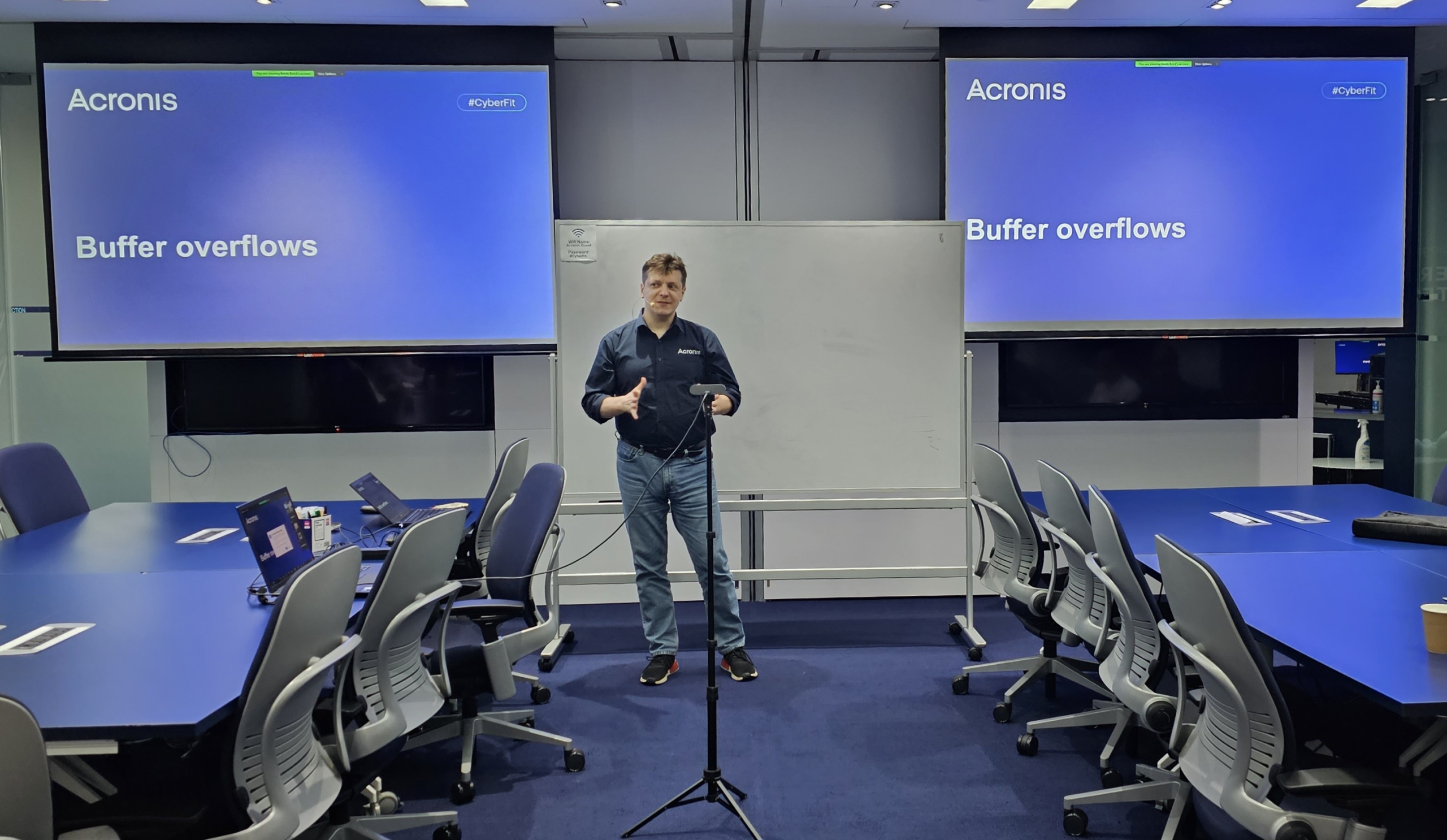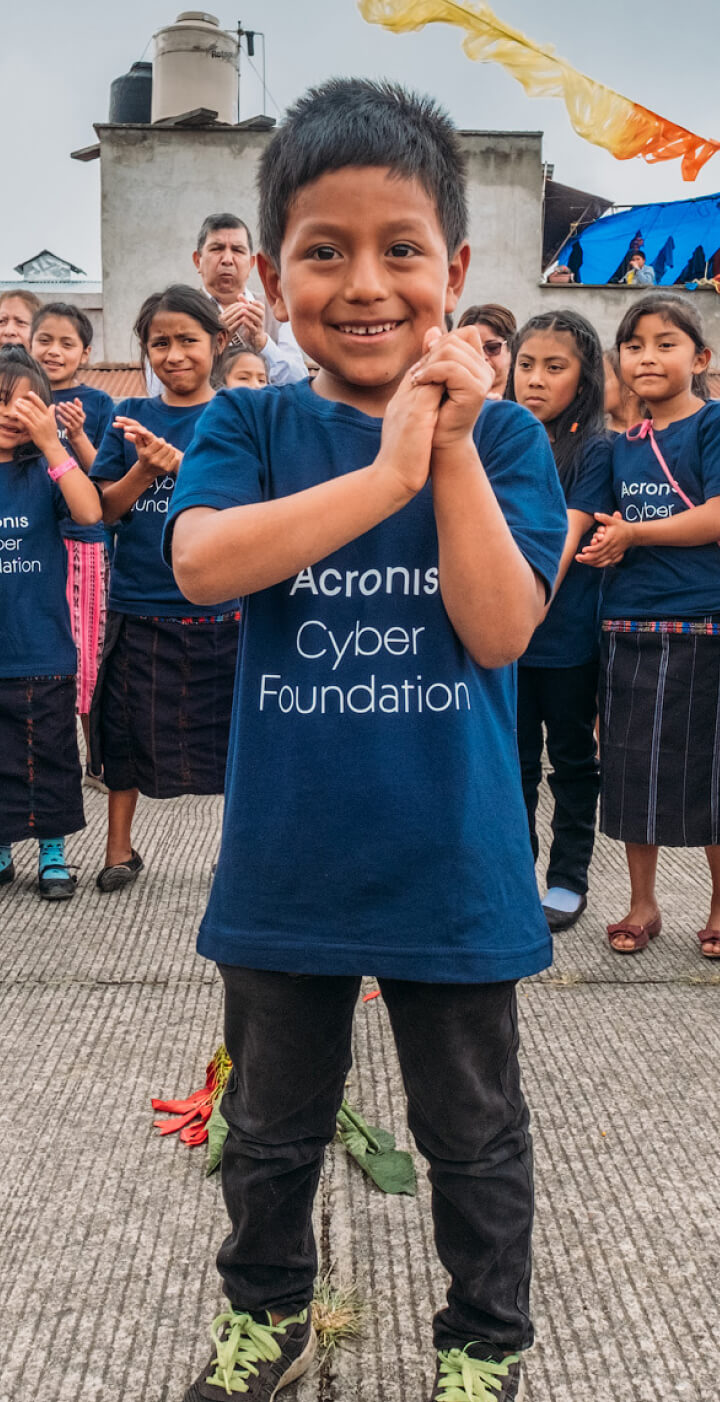On October 17 2023, cybersecurity enthusiasts and professionals gathered to attend a knowledge session led by Acronis CISO Kevin Reed. The session revolved around the fascinating world of buffer overflows and basic exploitation techniques, shedding light on vulnerabilities that have left an indelible mark on cybersecurity.
Kevin Reed delved into the history of buffer overflows to set the stage, pointing to the watershed moment in 1996 when Aleph One’s paper, “Smashing the Stack for Fun and Profit,” was published in Phrack Magazine. This paper permanently altered the course of cybersecurity by introducing the concept of stack-based buffer overflows. These overflows allowed malicious actors to inject and execute arbitrary code, igniting a revolution in our approach to security vulnerabilities.

Throughout the event, Kevin Reed took attendees on a captivating journey through the intricate world of buffer overflows and exploitation. The key highlights of the session included:
Understanding Buffer Overflow Vulnerabilities: Reed explained the fundamentals of buffer overflow vulnerabilities. Attendees learned how these vulnerabilities occur when a program writes more data to a buffer than it can handle, leading to potential memory corruption and security breaches.
Memory Organization and Function Call Conventions: Reed provided insights into the complex world of memory organization and function call conventions. Understanding how memory is structured and how function calls, and returns operate is crucial for comprehending how buffer overflows work.
Stack Frame Strategy and C Arrays Memory Layout: Stack frames are essential for function calls and returns. Reed elucidated how these stack frames are structured and how C arrays are laid out in memory. This knowledge was a stepping stone to understanding the inner workings of buffer overflows.
Basic Exploitation Techniques: Attendees were given a hands-on insight into basic exploitation techniques. They learned how buffer overflows can be exploited to overwrite the function return address, potentially leading to the execution of arbitrary code. This practical knowledge is invaluable for those looking to bolster their cybersecurity skillset.

One of the remarkable aspects of the event was its accessibility. Kevin Reed designed the session to be inclusive, requiring no prior knowledge of C, assembly languages, or operating system architecture. This approach allowed a diverse audience to participate, including beginners and experienced cybersecurity professionals.
The event saw participation from a total of 53 individuals. Of these, 33 joined the session via Zoom, while 20 attended in person. The engagement and enthusiasm of the attendees were palpable, with questions, discussions, and a thirst for knowledge driving the session forward.
The Buffer Overflows and Basic Exploitation Knowledge Session by Kevin Reed was a resounding success. Attendees left the event with a deeper understanding of these critical cybersecurity concepts and a newfound appreciation for the historical significance of Aleph One’s groundbreaking paper. As the cybersecurity landscape continues to evolve, the knowledge shared in this session will undoubtedly empower individuals to better protect against emerging threats.
We thank Kevin Reed for his expertise and dedication to sharing this invaluable knowledge. The session is a testament to the cybersecurity community’s commitment to ongoing learning and adapting to the ever-changing threat landscape. We look forward to more enlightening sessions and opportunities to expand our knowledge and skills in the world of cybersecurity.
Acronis Cyber Foundation Program welcomes individuals, groups, and companies to partner with us to work side-by-side with communities to bring them hope through education.
Contact us to find out more!

